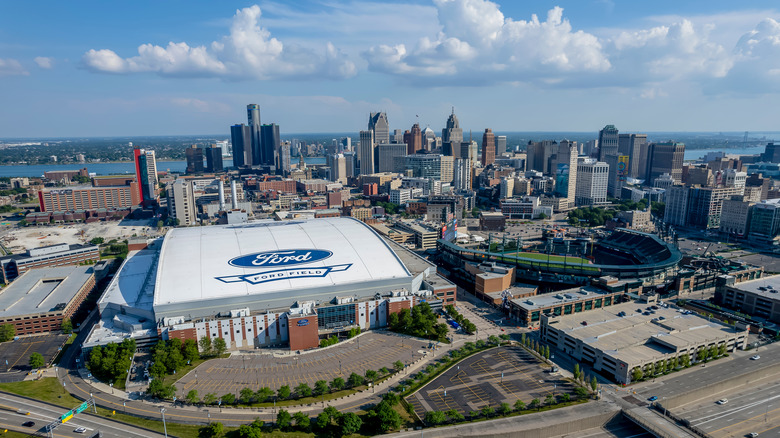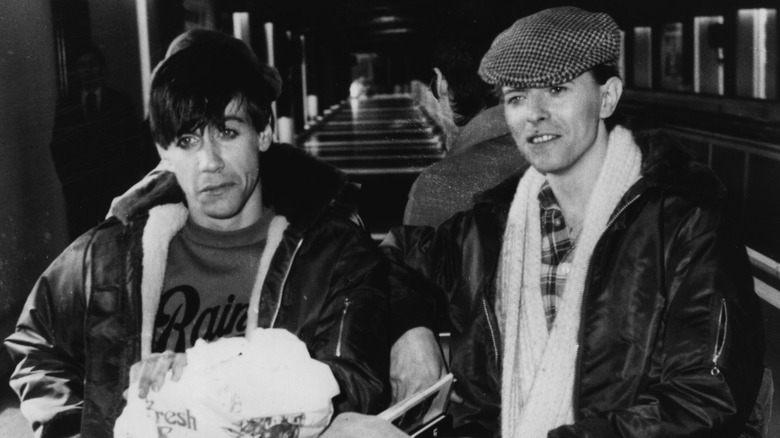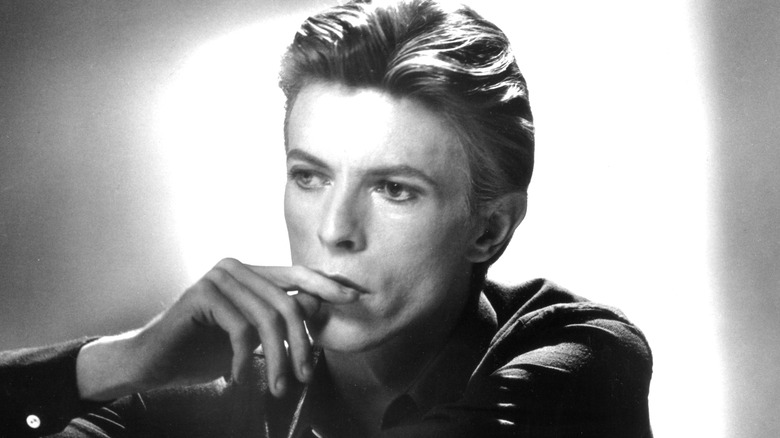Iggy Pop's Experiences During An Infamous Race Riot Inspired One Of David Bowie's Classic Songs
Hockey Town, Motor City, the home of Motown — call it what you will. Once upon a time, the city of Detroit was a metropolis of industry, art, progress, and entertainment. According to Visit Detroit, the southern Michigan region was home to the first paved roads and the first assigned telephone numbers in the United States. And on a global scale, there's a very good chance that World War II would have turned out differently (and by differently, we mean much worse) had the city not suspended the manufacturing of automobiles for a time in order to build tanks, bombers, and essential war supplies instead. Undoubtedly, we owe a great debt to the timeless town, but sadly, things in Detroit have looked a little more dismal in recent years.
Aside from enduring one of the worst economic collapses in U.S. history, Detroit has also seen its fair share of riots. One of its more notable inhabitants, rocker Iggy Pop, got an up close and personal look at one of them in 1967. Songfacts reports that the "Lust for Life" singer witnessed firsthand the devastation and chaos that swarmed the city on July 23 of that year. His experience was so profound, it actually inspired one of the most popular David Bowie songs of all time.
The Detroit riots of 1967
Having grown up in Detroit, Iggy Pop beheld much of the city's rampant poverty and crime. On July 23, 1967, its general state of unrest and internal strife came to a grisly head when an after-hours bar that was hosting a welcome home party for two Vietnam veterans was broken up by police. According to Britannica, the establishment was raided, and everyone in attendance was arrested. The resulting discontent amongst nearby citizens culminated into a violent frenzy that claimed no less than 43 lives. Countless others were injured, 7,000 were arrested, and a staggering 1,000 buildings were destroyed/looted in the subsequent riots that spread across town.
In an effort to contain the surmounting mayhem, Michigan Governor George Romney deployed some 9,000 U.S. National Guard recruits and another 800 members of the Michigan state police (via Britannica). When his combative efforts proved futile, President Lyndon B. Johnson took matters into his own hands and sent U.S. Army troops into the city to help state authorities regain control. Britannica reports that many of the establishments that were destroyed during the swarm of madness were never rebuilt, and the Detroit riots of 1967 are still considered some of the worst to ever befall the city and among the most devastating in U.S. history as a whole.
Iggy Pop relayed his experience to David Bowie
According to Fuzz Music, Iggy Pop became close friends with David Bowie after the two first met in 1971. Given their general aesthetic of eccentric fashion, high-energy performances, and illustrious sex appeal, it's no wonder they became close friends and creative partners. Pop himself is on record stating that much of his recovery from drug and alcohol addiction can be attributed to the support of his late friend and fellow musician. "David's friendship was the light of my life. I never met such a brilliant person. He was the best there is," he once said (via Far Out).
Though the Detroit riots took place a few years before David Bowie and Iggy Pop met, the two discussed in detail the latter's harrowing experience as he watched it all unfold. Witnessing your hometown become enraptured by violence and destruction for an agonizing stretch of days isn't something you're liable to forget, and as artists are wont to do, Bowie took his friend's story and funneled it into his own creative prism. Thus was born "Panic in Detroit," as Songfacts reports.
If you or anyone you know is struggling with addiction issues, help is available. Visit the Substance Abuse and Mental Health Services Administration website or contact SAMHSA's National Helpline at 1-800-662-HELP (4357).
Bowie writes Panic in Detroit
"Panic in Detroit" (from Bowie's 1973 album "Alladin Sane") is a song that evokes themes of revolution and civilian tribulations. The general struggles of a downtrodden populace and its desperate efforts to regain its standing in the world are featured throughout, though its delivery is peculiar given the themes. The song unfolds in a pseudo-light-hearted manner with salsa beats, conga drums, and radiant female harmonic vocals that make it sound like a soulful anthem of benevolence and celebration.
Still, there's something barbed and uncompromising at its core. It carries a sort of ferocity that — despite those various bedazzled melodies and knick-knacks throughout — delivers the true message of the song fully unadulterated and passionately declared. "He laughed at accidental sirens / That broke the evening gloom / The police had warned of repercussions / They followed none too soon," the lyrics read at one point (per Songfacts).



